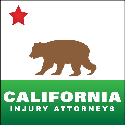
You need a West Hollywood accident lawyer on your side to protect your interests.
When you or loved ones suffers an injury in an accident, you might not immediately think about filing a lawsuit. However, it is important to look into filing a claim in order to receive compensation for your injuries. If you are in pain, it can be difficult to clearly think about what evidence you will need for a personal injury case. These tips from a West Hollywood accident lawyer can help you know what evidence you will need to make a successful personal injury case.
Burden of Proof
As a plaintiff in a personal injury case, you and your lawyer will need evidence to prove four elements of negligence:
- Duty to exercise reasonable care: the defendant has a duty to exercise reasonable care to operate their vehicle safely or ensure that visitors to their property would be safe from unreasonable harm.
- Breach of duty of care: the defendant has exercised care which falls below the reasonable standard to prevent harm.
- Legal and proximate cause: proof that if the defendant had not been negligent, you would not have been injured, and that the injuries you sustained resulted from the defendant’s failure to abide by the standard of care.
- Money damages: supported with evidence of your expenses and losses because of your injuries.
You will need reliable evidence to provide these four elements. Therefore, if you have insufficient evidence, it will be difficult to win your personal injury lawsuit.
Physical Evidence
This type of proof is evidence that you can see or touch. If you are in a car accident, damage to your vehicle can be physical evidence that can help prove the cause of your injury. The torn or bloodied clothing that resulted from an accident can also provide proof of your physical injury. In the event of an injury from a defective product, you should save the product to keep it as proof of the defect. Any physical evidence should be carefully preserved or photographed as soon as possible before it is altered by weather, repaired, or destroyed.
Police Reports
If a car accident results in your injury, the police report from your accident is an important piece of evidence. This report may provide evidence that helps determine who caused the accident.
Witness Statements
When possible, immediately collect names, phone numbers, and statements from people who witnessed your accident. Do not rely on the police to gather this information because the witnesses may leave the scene before the police arrive.
Photographic Evidence
When physical evidence is not available, photos of the evidence are your next best option. You should also take photos or a video of the accident scene. These photos should show the scene from various angles. Additionally, make sure to make notes about the date, time, and the content of the photos. You will also want to provide photographic evidence of your injuries whenever possible.
Medical Reports and Bills
You will need reports and copies of the bills from doctors who treated your injuries. This includes records of your initial examination, reports from any specialists seen, and any second opinions.
Proof of Income and Income Lost
You will need to provide proof of your income with your pay stubs, W2 forms, or tax returns. This helps provide evidence of what your income was before your injury and what wages you have lost as a result.
Don’t Go It Alone. Hire a West Hollywood Accident Lawyer
Navigating the court system on your own for a personal injury lawsuit is difficult. Therefore, you need a West Hollywood accident lawyer on your side to protect your interests. Because accidents don’t always occur between 8:00 AM and 5:00 PM, California Injury Attorneys are ready 24 hours a day, 7 days a week to take your call at (323) 999-HELP. Or you can use our convenient Live Chat on our website. Don’t wait! Contact us for your free consultation today.

